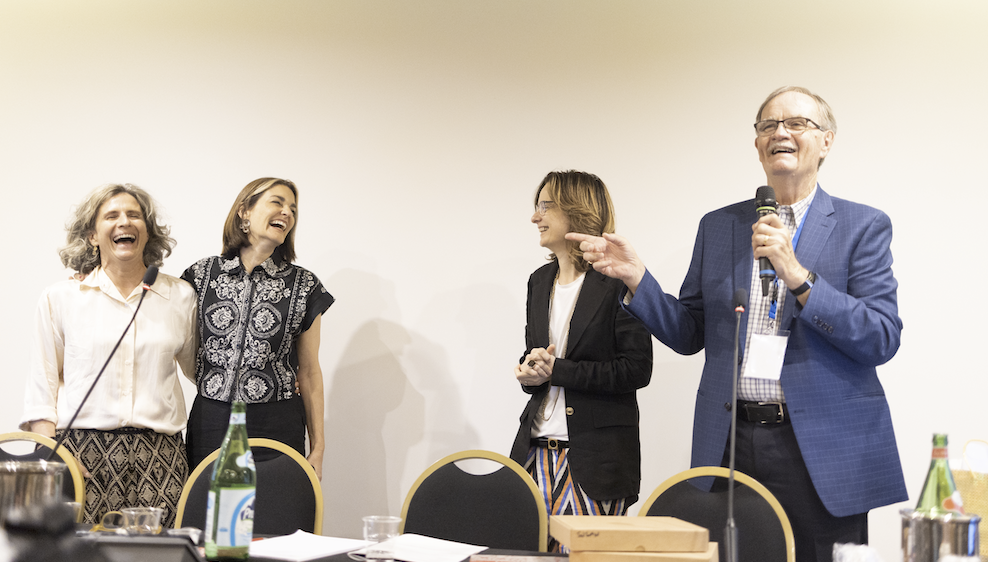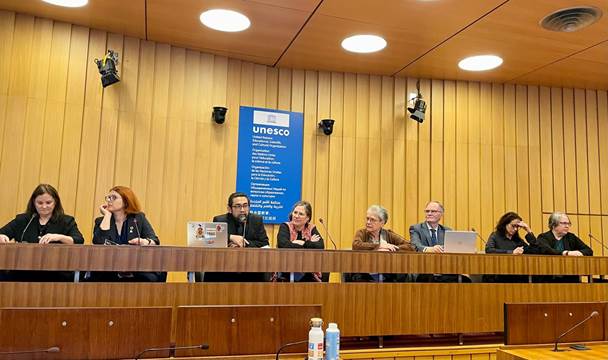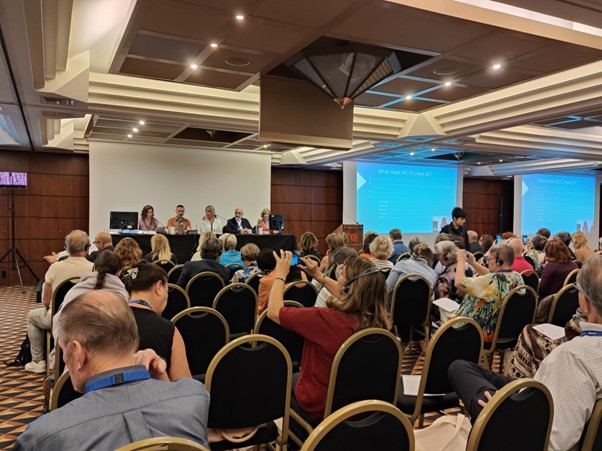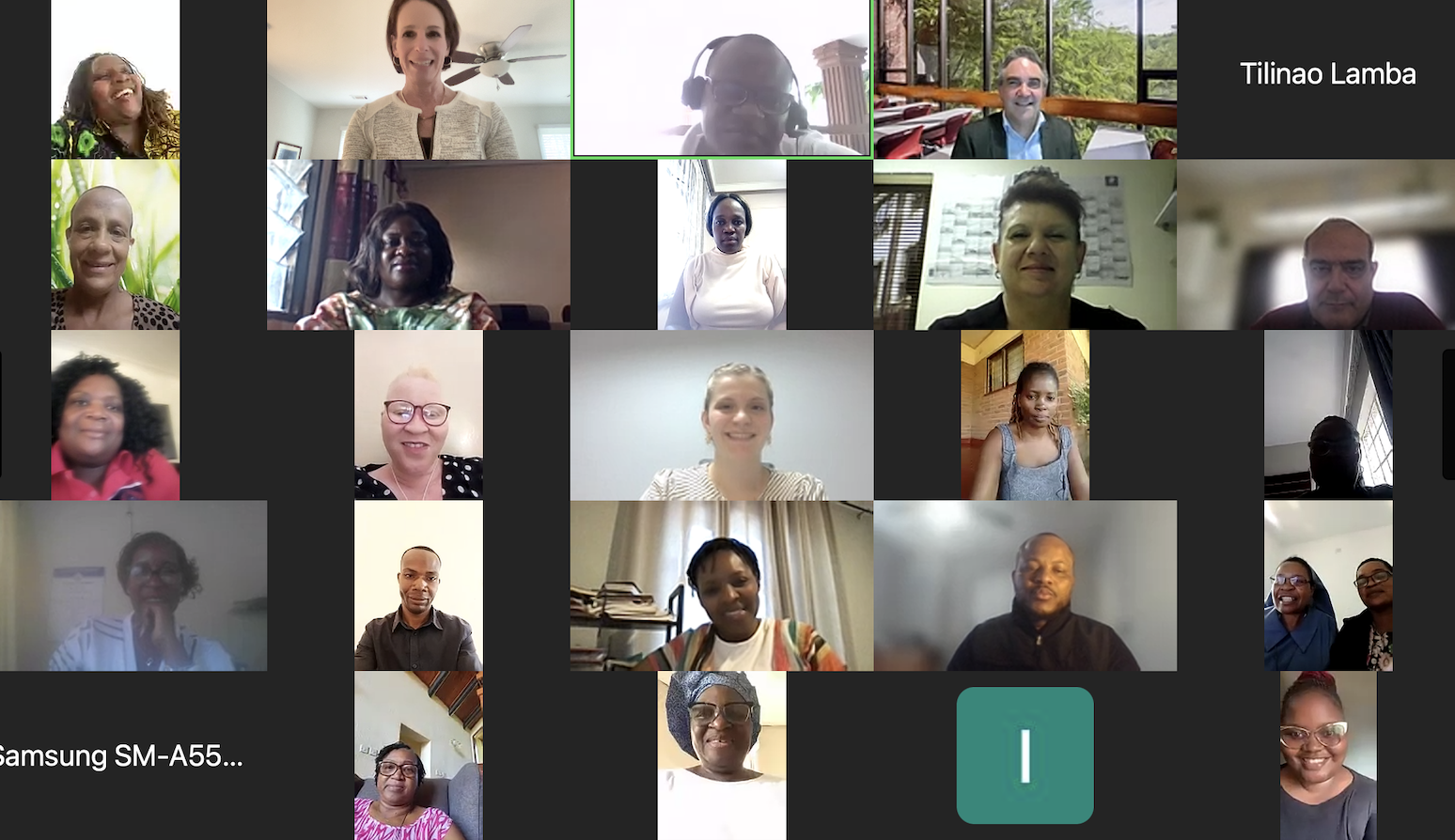I. Purpose:
The purpose of the IAC Peace and Social Justice Roundtable is to provide a forum for international dialogue, networking, advocacy and strategic initiatives among counselling professionals to give voice and address inequity and injustice, and to advance the freedom and empowerment of those who are often marginalized and oppressed by society.
II. Roundtable Activities:
- Create a network of academics and practitioners involved in peace and social justice work.
- Facilitate a peace and social justice think tank at IAC conferences to identify relevant local and global issues.
- Organize international peace and social justice forums in collaboration with national counselling associations and in areas where counselling is an emerging profession.
III. Documents that Frame and /inform the work of the Peace and Social Justice Roundtable.
- The Universal Declaration of Human Rights
- Declaration of Principles on Tolerance
- Declaration of Cultural Diversity
- A Declaration on a Culture of Peace
IV. Supporting Information
Below are excerpts of the above documents to highlight the underlying philosophy and belief system that shapes the vision of this roundtable. We encourage all who are interested in this Round Table or these issues to take time to thoroughly read these important documents. In some instances the text is exactly as it appears in these documents and in other cased it is adapted - shortened to fit a smaller space. Other authors are also included below and they are cited. These documents can be found on the United Nations (UN) and United Nations Education, Scientific and Cultural Organization (UNESCO) websites in their entirety.
A. The Universal Declaration of Human Rights
Whereas recognition of the inherent dignity and of the equal and inalienable rights of all members of the human family is the foundation of freedom, justice and peace in the world.
The UDHR, increasingly referred to as customary international law, consists of five crucial notions fundamental of social justice concerns:
- Human dignity
- Nondiscrimination
- Civil and political freedoms
- Economic, social and cultural rights
- Rights to solidarity
Human Rights
“Inherent, universal and inalienable, meaning that “they are held by everyone by virtue of being human and cannot be given or taken away.” While acknowledging that the meaning and relative weight of human rights may be interpreted differently in different social, political and cultural contexts.” - Parlevliet, M. (2010). Rethinking conflict transformation from a human rights perspective. Human Rights and Conflict Transformation: The challenges of justpeace. Berghof Handbook Dialogue Series, no. 9, Berghof Conflict Research.
“Human Rights are the bedrock of social justice. The human condition mirrors an inextricable connection not only between mental and physical states, but also with spiritual-existential quests for meaning and within social and environmental contexts. The struggle for social justice constructed on a foundation of human rights requires one to attune to such linkages”. - Wronka, J. (2008). Human rights and social justice. Social action and service for the helping and health professions. Thousand Oaks, CA: Sage.
The overall aim of social justice practices is to minimize oppression and injustice in favor of equality, accessibility, and optimal developmental opportunities for all members of society. Social justice is about the elimination of any aspect of social structures or organizational practices that contributes to domination or oppression. (Young, 1990) regardless of ethnicity, race, sex, gender identity, sexual orientation, economic status, and other individual characteristics. (Lewis, Ratts, Paladino, & Toporek, 2011)
B. Declaration of Cultural Diversity
Excerpts: Diversity is as necessary for humankind as biodiversity is for nature. Diversity is the common heritage of humanity. Cultural diversity is a means to achieve a more satisfactory intellectual, emotional, moral, and spiritual existence.
The defense of cultural diversity is an ethical imperative, inseparable from respect for human dignity - in particular the rights of persons belonging to minorities and those of indigenous peoples
Culturally competent counsellors are:
Individuals in the ongoing process of becoming globally literate human beings who possess the awareness, knowledge and skills to actively address local & global challenges of human rights, peace and justice that impact the mental health and well-being of diverse individuals, groups and societies within context. (Lee, V. V., adapted from Lee, C. C. 2012)
C. Declaration of Principles on Tolerance
Within the Preamble: Alarmed by the current rise in acts of intolerance, violence, terrorism, xenophobia, aggressive nationalism, racism, anti-Semitism, exclusion, marginalization and discrimination directed against national, ethnic religious and linguistic minorities, refugees, migrant workers, immigrants, and vulnerable groups within societies, as well as acts of violence and intimidation committed against individuals for exercising their freedom of opinion and expression – all of which threaten peace and democracy, both nationally and internationally.
On Tolerance - Excerpts from the Declaration: (some adaptations)
- Tolerance is respect, acceptance and appreciation of the rich diversity of our world’s cultures, our forms of expression and ways of being human.
- Tolerance is harmony in difference.
- Tolerance makes peace possible contributing to the replacement of the culture of war by a culture of peace.
- Tolerance at the State level requires just and impartial legislation, law enforcement and judicial and administrative processes.
- Exclusion and marginalization can lead to frustration, hostility and fanaticism.
- Without tolerance there can be no peace.
- Tolerance is necessary between individuals and at the family and community levels.
- Tolerance promotion should take place in schools and universities and through non-formal education, at home and in the work place.
- Education is the most effective means of preventing intolerance.
- Tolerance is about countering influences that lead to fear and exclusion of others and help young people to develop capacities for [sound] judgment, critical thinking and ethical reasoning.
D. A Declaration on a Culture of Peace
Culture of peace” is defined as: “consisting of values, attitudes and behaviors that reflect and inspire social interaction and sharing based on the principles of: freedom, justice and democracy, all human rights, tolerance and solidarity, that reject violence and endeavor to prevent violence by tackling their root causes to solve problems through dialogue and negotiation and that guarantee the full exercise of all rights and the means to participate fully in the development process of their society.”
- A culture of peace is a conceptual as well as a normative framework
- Envisaged to instill in people a global consciousness and firm disposition to dialogue
- A collective attempt to create paths for harmonious coexistence
- Develop capacity to think about peace and order as dynamic forces of social, economic, and political life
Defining Everyday Peace within a Culture of Peace - UNESCO
- Everyday peace is not the mere absence of war, conflict or violence.
- Everyday peace is an active and collaborative social project
- Everyday peace is closely tied to the perception of fairness in the social contract
- Everyday peace begins in domestic and community life, not solely in the high corridors of power and diplomacy
- Everyday peace and economic development are both complementary and reciprocal social conditions
- Peace is never automatic, permanent or self-maintaining.




